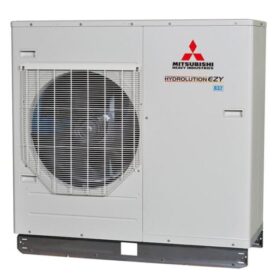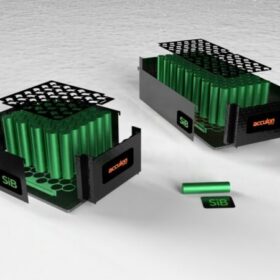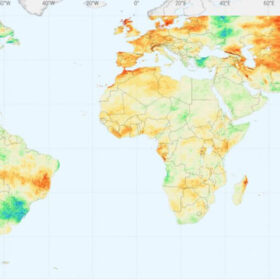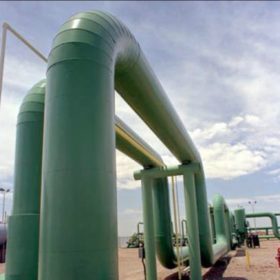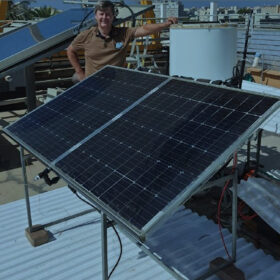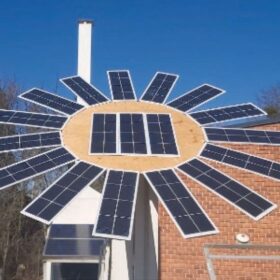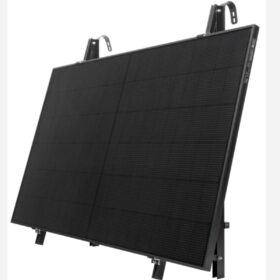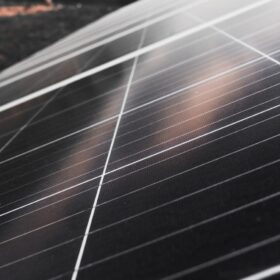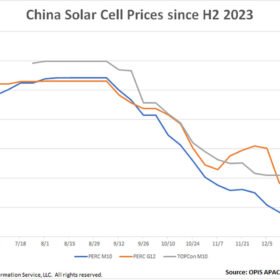Mitsubishi debuts residential air-to-water heat pumps
Mitsubishi’s monobloc Hydrolution EZY can reportedly produce domestic hot water up to 60 C when outdoor temperatures reach -25 C. It is available in two versions, with outputs of 10 kW and 14 kW.
Acculon launches production of sodium-ion battery modules, packs
US-based Acculon Energy has announced series production of its sodium-ion battery modules and packs for mobility and stationary energy storage applications. Scaled production of 2 GWh is scheduled to start in mid-2024.
Rain insufficient for removing tree pollen from solar panels
An analysis by NREL in North Carolina reveals that various types of tree pollen can reduce solar panel efficiency by over 15%. Unlike the immediate improvements assumed to follow heavy rain, recovery of performance post-pollen season is gradual. Manual cleaning post-rain can boost performance by 5% to 11%.
Global solar irradiance ‘relatively stable’ in 2023, says Solargis
With global irradiance above average in Australia, Southeast Asia and Europe, and stable in the United States, solar data provider Solargis says stakeholders should focus on the stability of power grids, while navigating solar financing complexities in developing economies and supply chain capacities in 2024.
The Hydrogen Stream: Hyundai, IIT Madras partner to set up Hydrogen Innovation Valley in the Indian State of Tamil Nadu
Indian Institute of Technology Madras (IIT Madras) announced it has received a grant of INR 100 crore (over $12 million) from Hyundai towards the establishment of a dedicated ‘Hydrogen Innovation Valley’ in the Indian state of Tamil Nadu.
Israeli startup launches 530 W bifacial PVT panel
P.G. Solar Greener says that its new panels have a thermal capacity of 1,280 Wh. They can reportedly achieve an overall dual electrical efficiency of 26%, due to an embedded cooling technique.
New solar tree design offers improved module cooling, lower shading losses
Researchers in Hungary have proposed to build photovoltaic trees with a significant distance between the solar panels. The proposed sunflower-shaped design reportedly reduces shading losses between the panels while improving cooling and heat dissipation.
Meyer Burger unveils black HJT solar panels for balcony applications
Switzerland-based manufacturer Meyer Burger has developed black heterojunction (HJT) solar modules for balconies, featuring 800 W microinverters, smart control units, and mounting systems.
Make PV modules as cheap as possible, but not cheaper
In a new monthly column for pv magazine, the International Solar Energy Society (ISES) explains how reducing glass thickness in PV modules may fracture the solar industry, impacting PV module and PV tracker suppliers, engineering, product and construction companies, and PV plant owners.
China solar cell prices decline on sluggish downstream demand
In a new weekly update for pv magazine, OPIS, a Dow Jones company, provides a quick look at the main price trends in the global PV industry.
